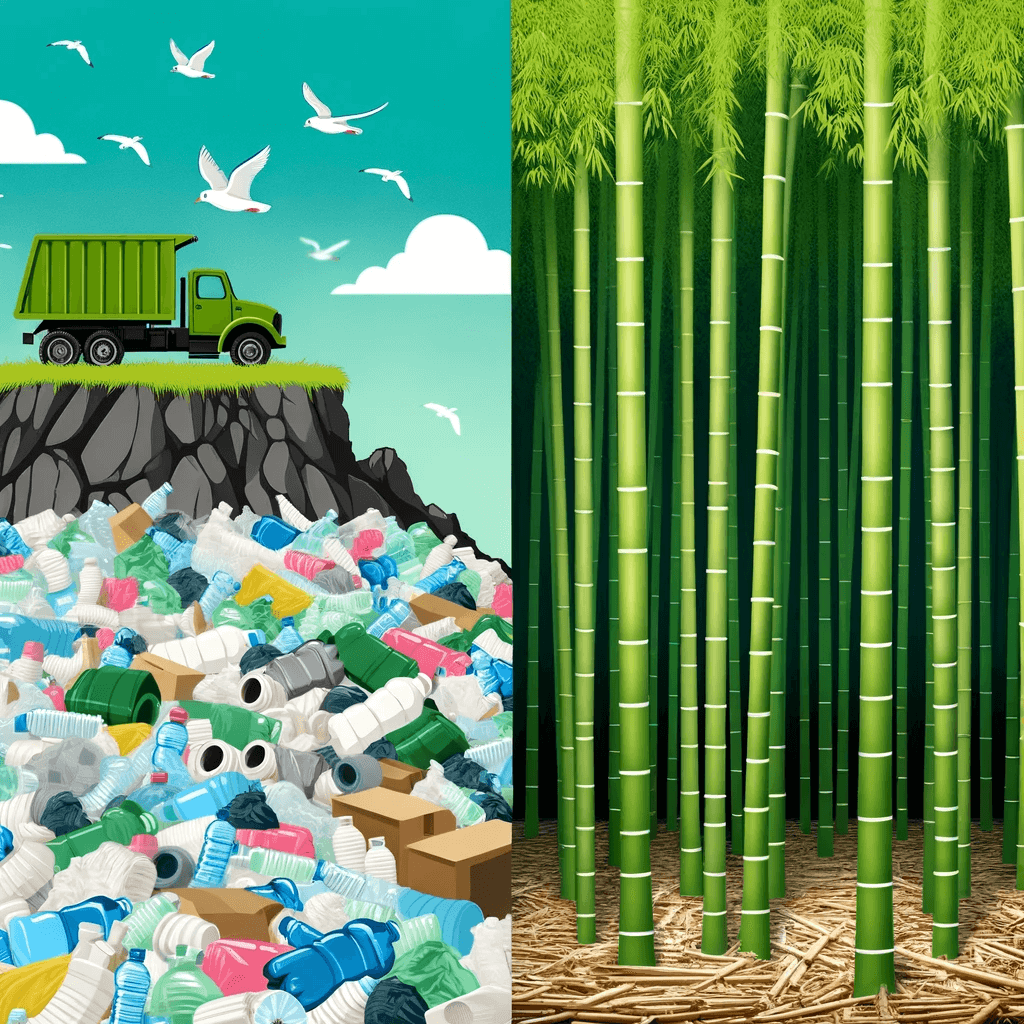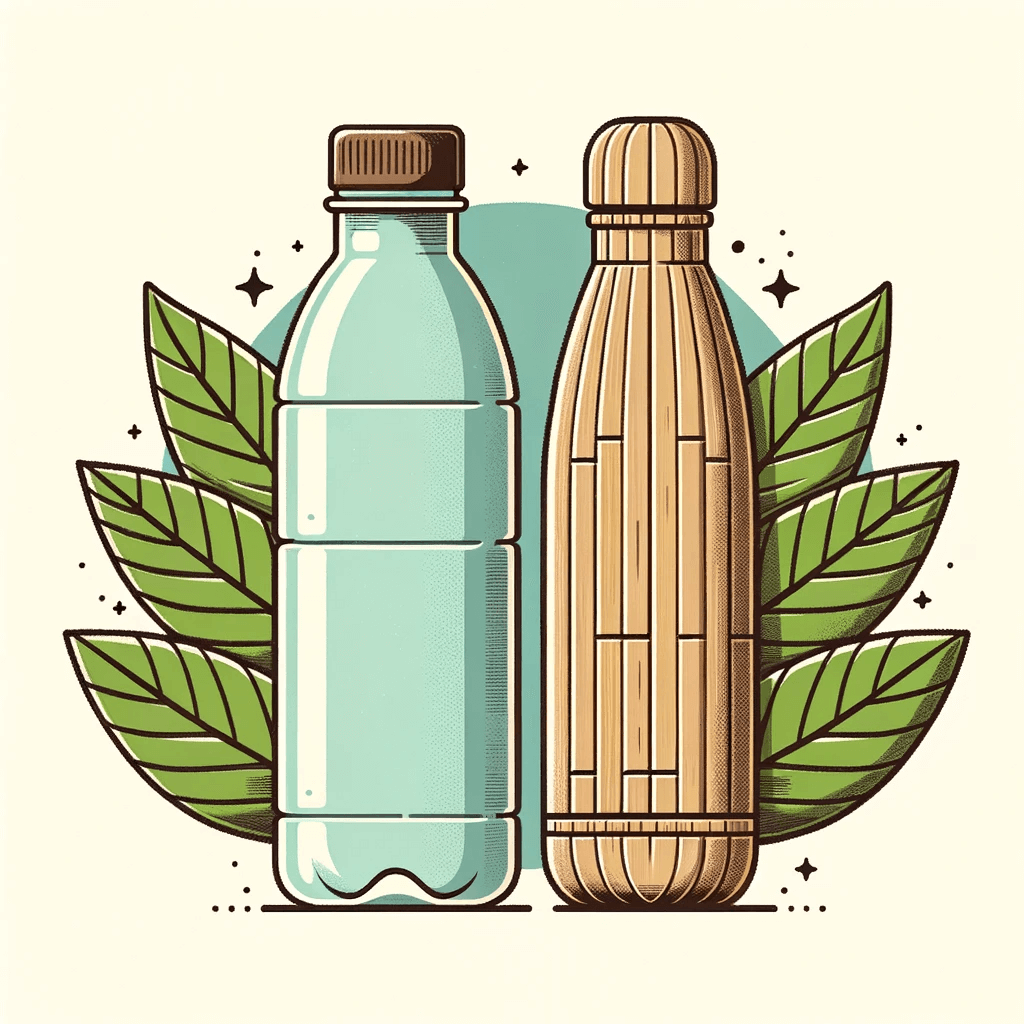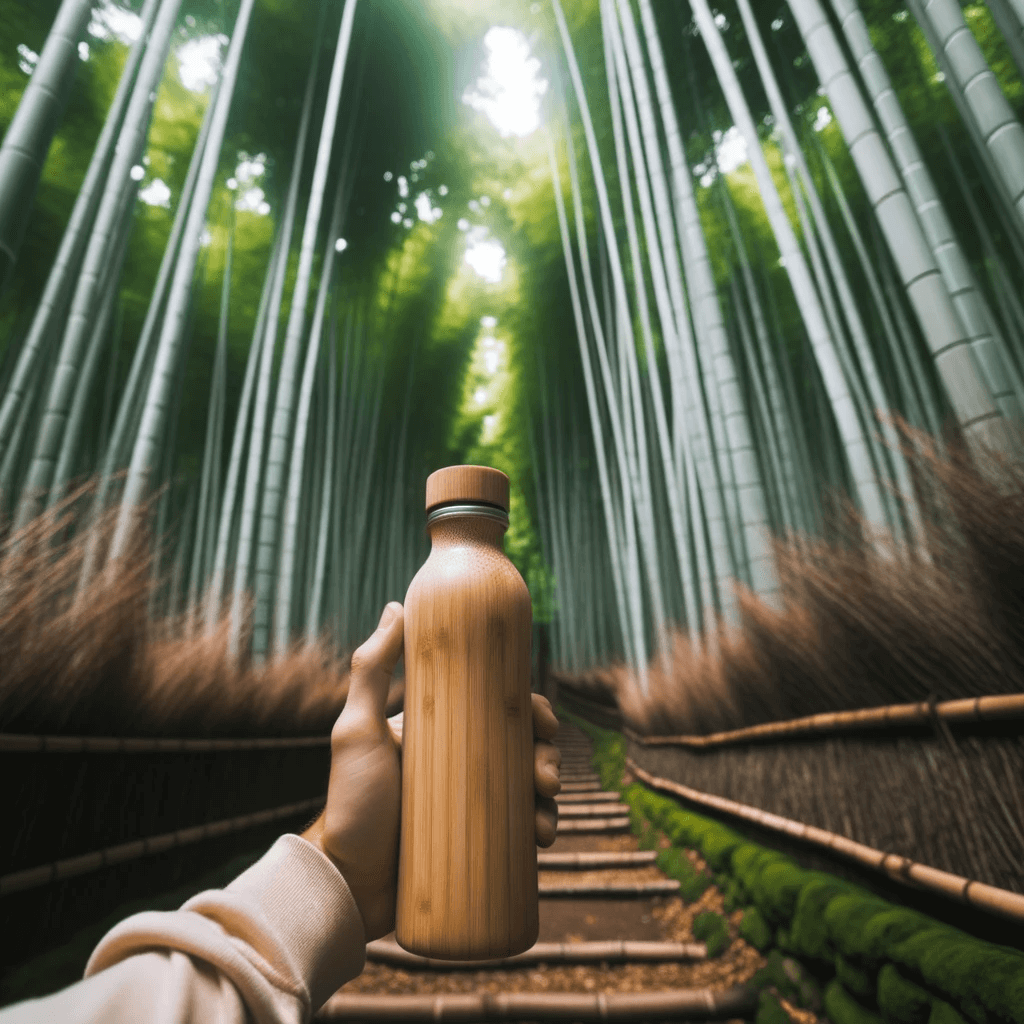19th Oct 2023
Sip Responsibly: Embrace the Eco-Friendly Lifestyle with a Bamboo Water Bottle
The Eco-Friendly Lifestyle
Embracing an eco-friendly lifestyle involves making conscious decisions that reduce harm to the environment. This includes choosing products that are sustainable and have minimal environmental impact, like a bamboo water bottle.
Understanding the Importance of Eco-Friendly Products
Eco-friendly products, such as the bamboo water bottle, play a crucial role in the pursuit of a greener lifestyle. They are designed to be reusable, sustainable, and biodegradable, making them a preferable choice over their non-eco-friendly counterparts.
The use of eco-friendly products has several benefits:
- Reducing waste: Eco-friendly products are often reusable, reducing the amount of waste that ends up in landfills.
- Conserving resources: Many eco-friendly products are made from renewable resources, helping to conserve non-renewable resources.
- Reducing pollution: The production, use, and disposal of eco-friendly products generally result in less pollution compared to non-eco-friendly products.
Impact of Plastic on the Environment
Despite the convenience it offers, plastic poses significant threats to the environment. Here are some facts that highlight the environmental impact of plastic:
- Waste generation: It's estimated that globally, over 300 million tons of plastic waste is generated each year.
- Non-biodegradable: Most plastics take hundreds of years to decompose. This makes plastic waste a persistent environmental problem.
- Impact on marine life: Millions of marine animals die each year due to plastic pollution. They mistake plastic for food or become entangled in it.
- Chemical leaching: Plastics can leach chemicals into the environment, contaminating soil and water sources.
| Environmental Impact | Plastic |
|---|---|
| Annual waste generation (in million tons) | Over 300 |
| Decomposition time (in years) | Hundreds |
| Annual marine animal deaths (in millions) | Millions |
The detrimental impact of plastic on the environment underscores the need for eco-friendly alternatives like the bamboo water bottle. By choosing such products, one can contribute to reducing the environmental footprint and preserving the planet for future generations.

Bamboo as an Eco-Friendly Alternative
In the quest for sustainable, eco-friendly products, bamboo has emerged as a significant player, especially in the realm of drinking vessels like bamboo water bottles.
Why Bamboo?
Bamboo's popularity as an eco-friendly alternative to plastic isn't without reason. This fast-growing plant requires minimal water and no pesticides to thrive, making it a highly sustainable resource. Compared to plastic, a non-biodegradable material that can take up to 1000 years to decompose, bamboo is a clear winner.
In addition, bamboo has a naturally anti-microbial property. This makes a bamboo water bottle a healthier choice for daily use. The bamboo material prevents bacteria and mould from taking hold, an issue often found with traditional plastic bottles.

Sustainability and Durability of Bamboo
Bamboo's sustainability extends beyond its cultivation. Bamboo products, including water bottles, are durable and long-lasting. They can withstand daily use, reducing the need for frequent replacement and thus minimizing waste.
Here's a comparison of the sustainability and durability aspects of bamboo versus plastic:
| Aspect | Bamboo | Plastic |
|---|---|---|
| Sustainability | High (fast-growing, minimal water and no pesticides) | Low (non-renewable, high energy and water consumption) |
| Durability | High (long-lasting, withstands daily use) | Varies (depends on type of plastic, some prone to cracking) |
| Decomposition Time | Few years | Up to 1000 years |
In conclusion, bamboo's sustainability and durability make it an excellent choice for eco-friendly products such as water bottles. By choosing a bamboo water bottle, individuals can make a positive impact on the environment while also benefiting from a durable, long-lasting product.
Embracing the Bamboo Water Bottle
As society becomes more aware of the environmental impacts of everyday items, a shift towards sustainable alternatives is happening. A prime example of such an alternative is the bamboo water bottle.
What is a Bamboo Water Bottle?
A bamboo water bottle is a drinking container made primarily from bamboo, a fast-growing, renewable plant. Generally, the outer casing or shell of the bottle is made from bamboo, while the inner lining, which comes into direct contact with the water, is made from stainless steel or glass, both of which are also eco-friendly materials.
Bamboo water bottles offer a sustainable and stylish alternative to single-use plastic bottles. They are reusable, durable, and biodegradable, making them an excellent choice for those seeking to reduce their carbon footprint.
How is a Bamboo Water Bottle Made?
The process of making a bamboo water bottle involves several steps:
- Bamboo Harvesting: The bamboo used for making the bottles is harvested in a sustainable manner. Mature bamboo stalks are cut while younger ones are left to grow, ensuring a continuous supply.
- Treatment: The harvested bamboo is treated to remove any insects, moulds, or fungi. This usually involves soaking the bamboo in a solution of borax and boric acid.
- Shaping and Hollowing: The treated bamboo is shaped into the desired size of the bottle. The inside is hollowed out to make space for the inner lining.
- Insertion of the Inner Lining: A stainless steel or glass lining is inserted into the hollowed-out bamboo. This lining is what holds the water.
- Finishing: The bamboo is then polished and smoothed to give it a finished look. Some bamboo water bottles are also coated with a food-grade finish for added protection.
The process of making bamboo water bottles is largely manual and requires skilled craftsmanship. Each bottle is unique, with its own grain and texture, adding to the appeal of these eco-friendly containers.
Choosing a bamboo water bottle is more than just a trendy lifestyle choice. It's a step towards reducing plastic waste and embracing a more sustainable, eco-friendly lifestyle. As more and more people make this switch, the collective impact can be significant, leading to cleaner oceans, healthier wildlife, and a better future for our planet.

Benefits of a Bamboo Water Bottle
Choosing to use a bamboo water bottle comes with a host of benefits. From reducing environmental impact to offering health advantages and unique aesthetic appeal, making the switch can be a rewarding experience.
Environmental Impact
One of the primary benefits of bamboo water bottles lies in their positive environmental impact. Bamboo is a highly sustainable material, growing at a much faster rate than hardwood trees. It also requires fewer resources like water and does not need pesticides or fertilisers, making it a more eco-friendly choice.
By choosing a bamboo water bottle, one is contributing towards reducing the use of plastic, a material that takes hundreds of years to decompose and is detrimental to our environment.
Health Benefits
In addition to being eco-friendly, bamboo water bottles also offer several health benefits. Unlike plastic bottles, bamboo does not contain harmful chemicals like BPA, which can leach into your water over time.
Bamboo is known for its natural antibacterial properties, helping to keep your water fresh and clean. It also has insulating properties, which means it can keep your water cooler for longer periods.
Aesthetic Appeal
Beyond their practical benefits, bamboo water bottles also have a unique aesthetic appeal. Each bamboo water bottle boasts a unique pattern due to the natural grain of the wood, making every bottle one-of-a-kind.
Bamboo water bottles often feature sleek, minimalist designs that suit any lifestyle or aesthetic preference. They are a stylish accessory for your daily life, be it at your work desk or during your outdoor adventures.
In summary, a bamboo water bottle is not just a sustainable choice for the environment, but it also offers health benefits and a distinctive aesthetic appeal. By opting for a bamboo water bottle, you're making a conscious choice to lead a more eco-friendly lifestyle, while enjoying the practical and stylish benefits of this natural material.
Care and Maintenance of Your Bamboo Water Bottle
Once you've made the decision to embrace an eco-friendly lifestyle and use a bamboo water bottle, it's equally important to understand how to properly care for and maintain it. This not only ensures the longevity of the bottle but also contributes to its overall sustainability factor.
Cleaning Your Bamboo Water Bottle
To clean your bamboo water bottle, it's advised to avoid using harsh detergents or abrasive sponges that can damage the bamboo. Instead, opt for mild soap and a soft cloth or sponge.
- Rinse the bottle with warm water.
- Fill the bottle halfway with warm water and a few drops of mild soap.
- Tighten the cap and shake the bottle vigorously.
- Dump the soapy water and rinse thoroughly with warm water.
- Allow the bottle to air dry, preferably upside down.
It's important to note that bamboo water bottles should not be washed in a dishwasher, as the high temperatures can cause the bamboo to warp or crack.
Tips for Maintaining the Quality and Durability of Your Bamboo Water Bottle
Proper maintenance can greatly enhance the lifespan and quality of your bamboo water bottle. Here are a few tips to keep in mind:
- Avoid Extreme Temperatures: Bamboo does not respond well to extreme temperatures. It's best to avoid using your bamboo bottle for hot beverages or freezing it.
- Keep it Dry: When not in use, ensure the bottle is kept dry to prevent the bamboo from swelling or moulding.
- Regular Cleaning: Regular cleaning is essential to prevent the buildup of bacteria or mould. It's recommended to clean the bottle after each use.
- Condition the Bamboo: To maintain the appearance and durability of the bamboo, it may be beneficial to condition it periodically with a food-safe mineral oil.
By adopting these simple practices, you can ensure that your bamboo water bottle remains in excellent condition for a long time, providing you with a sustainable and eco-friendly hydration solution.
Making the Switch: From Plastic to Bamboo
Transitioning to an eco-friendly lifestyle entails making conscious choices about the products one uses daily. One such shift involves replacing traditional plastic water bottles with bamboo alternatives.
Steps Towards an Eco-Friendly Lifestyle
The first step towards an eco-friendly lifestyle involves understanding the environmental impact of our choices and seeking out sustainable alternatives. For instance, choosing a bamboo water bottle over a plastic one can significantly reduce one's ecological footprint.
Here are some steps to transition towards a more eco-friendly lifestyle:
- Assess Current Impact: Understand the environmental impact of current lifestyle choices, like the use of single-use plastic water bottles.
- Research Alternatives: Look into eco-friendly alternatives, such as bamboo water bottles.
- Make the Switch: Gradually replace plastic items with sustainable alternatives.
- Spread Awareness: Encourage others to make similar environmentally-friendly changes.
The Role of Bamboo Water Bottles in Reducing Plastic Waste
Plastic water bottles contribute significantly to plastic waste, an issue that poses major environmental challenges. Switching to a bamboo water bottle can play a major role in reducing plastic waste.
To illustrate, consider the following data:
| Number of Plastic Water Bottles Used per Year | Number of Bamboo Water Bottles Needed |
|---|---|
| 365 (1/day) | 1 |
| 730 (2/day) | 1 |
| 1095 (3/day) | 1 |
As shown, a single bamboo water bottle can replace hundreds of plastic ones. This simple switch can significantly reduce an individual's contribution to plastic waste.
Moreover, bamboo water bottles are not only environmentally friendly but also aesthetically pleasing, durable, and safe for health. They offer a sustainable and practical solution for hydration needs while promoting an eco-friendly lifestyle.
The move from plastic to a bamboo water bottle symbolizes a commitment to environmental sustainability. It's a small step that can make a big difference in the battle against plastic waste.


